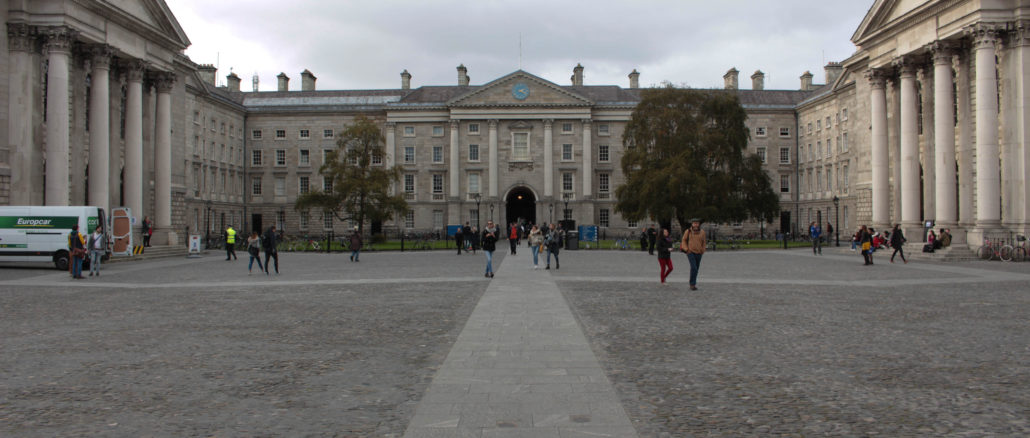
“I feel betrayed by Trinity. They have abandoned me in many ways,” says 21 year old Ibn Qalleb.
As you could assume by the name, Ibn is Arabic. But he feels betrayed for reasons you might not expect: he is an ex-Muslim, or an ‘apostate’. A minority within a minority. A minority that Ibn says Trinity College has neglected.
Ibn spent two months researching and writing a report on the prolific and extreme speakers invited to speak at Trinity by the Muslim Students Association (MSA). He published ‘Islamism on Campus’ in January through the Council of Ex-Muslims in Britain (CEMB).
Speakers have included Adnan Rashid of the Islamic Education and Research Academy (IERA). An article in the Telegraph last year revealed that six IERA fund-raisers traveled to Syria to become ISIS jihadists. On the topic of marital rape Rashid has been quoted as saying: “Women in the Muslim world are generally not raped by their husbands because don’t usually refuse to have intimacy with them.”
Haitham al Haddad was invited to speak by the MSA in 2013. Another IERA member, he has called jihad a ‘duty’ for Muslims “to fight until they establish the law of Allah”. He’s called for death to apostates and homosexuals.
Rashid and al Haddad visited the campus in 2012 and 2013, before the rise of ISIS. Before the stories of young European Muslims being recruited through social media and fleeing to Turkey dominated headlines.
However, the MSA invited extremist speakers up until last February. In an inter-varsity event called, “Mr or Mrs. Right”, lecturer Mufti Muhammad Ibn Adam Al-Kawthar was a guest speaker.
The event description explained: “Life is not meant to be lived alone. No matter how many friends and relatives you have, there is nothing like someone to grow old with.” Ever the romantic, Al-Kawthar supported the killing of adulterers in transcripts published by his organisation, Darul Iftaa.
Would it be fair to say that the views of these speakers are incidental, that the five speakers outlined in the report over a ten year period are a minority?
“It’s hard to say,” says Ibn. “If you invite speakers with particularly radical views, what does that say about you?”
Surely, this contradicts the image of Trinity as a shining beacon for liberalism. According to Ibn, his report has been largely ignored, with Trinity refusing to comment. The MSA also did not comment by the time of publication.
The CEMB was founded by Maryam Namazie, who experienced her own share of controversy when she cancelled her visit to Trinity following what she believed to be unfair restrictions. She resumed her visit in October, drama-free.
Ibn’s report also scrutinises Goldsmiths College and Warwick University in the UK. Both attempted to block Namazie’s visits unsuccessfully. Namazie endured harassment and protest from Goldsmith’s Islamic Society (ISOC) male members as captured by a video of her talk.
Both Ibn and Maryam stress that there is a difference between Islam as a religion and Islamist politics.
“I think if you look at mainstream society, there’s a fear of being Islamophobic. Of criticising Muslims. But by doing that, they let down the apostates at the center like me.”
Ibn says politics is a tightrope for ex-Muslims: “Liberals don’t want us. The right-wing wants us for the wrong reasons. We’re left in purgatory between the two political sides.
“I’m left-wing. I’m a liberal. I care about human rights and social inequality. I care about minorities. A lot.”
Ibn, by the way, is a pseudonym. Apostasy is punishable by death in the Maghreb region where he still has family.
“I hope that changes in the future. That those of us who have different views can speak publicly.”
Aura McMenamin
Image: Graham McGrath

Leave a Reply